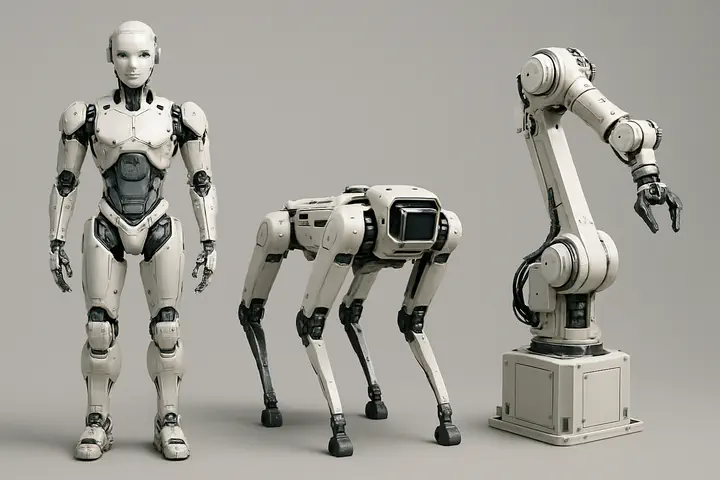Robotics for Real-World Physical AI
 Image credit: [ChatGPT]
Image credit: [ChatGPT]Abstract: My research in robotics aims to integrate computer vision, spatial reasoning, and machine learning to enable physically embodied AI systems. I am particularly interested in visual geometry and 3D perception for robotic perception and control, including point cloud registration, pose estimation, and multi-view geometry. By combining representation learning with robotics, I explore how invariance, equivariance, and self-supervised learning can be leveraged to achieve more generalizable and data-efficient robotic intelligence. The ultimate goal is to develop embodied AI systems that can perceive, reason, and act reliably in dynamic real-world environments, bridging the gap between simulation and physical deployment.
Research Idea
In this line of research, we aim to develop embodied AI systems that can perceive, reason, and act in dynamic physical environments. While modern vision and learning algorithms have made progress in simulated benchmarks, there remains a significant gap between simulation and real-world robotic deployment, where challenges such as noisy sensing, uncertain dynamics, and safety constraints must be addressed.
Our approach focuses on combining visual geometry, spatial reasoning, and representation learning with robotic control. By embedding equivariant and invariant representations of 3D transformations into robotic perception pipelines, we enable robots to maintain geometric consistency across changing viewpoints, lighting conditions, and environments.
Relavant Papers:
- GR00T N1: An Open Foundation Model for Generalist Humanoid Robots, 2025.03. NVIDIA: https://developer.nvidia.com/isaac/gr00t
- Embodied Agent Interface: Benchmarking LLMs for Embodied Decision Making, Li et al., NeurIPS 2024
- WonderWorld: Interactive 3D Scene Generation from a Single Image, Yu et al., CVPR 2025
Embodied AI Workshops in CVPR 2025 (https://cvpr.thecvf.com/Conferences/2025/workshop-list)
- 6th Embodied AI Workshop (EAI) Claudia DArpino, Luca Weihs 101 D
- Embodied Intelligence for Autonomous Systems on the Horizon Huijie Wang Grand B1
- Foundation Models Meet Embodied Agents Manling Li 214
- Multi-Agent Embodied Intelligent Systems Meet Generative-AI Era: Opportunities, Challenges and Futures Haibao Yu 102 A